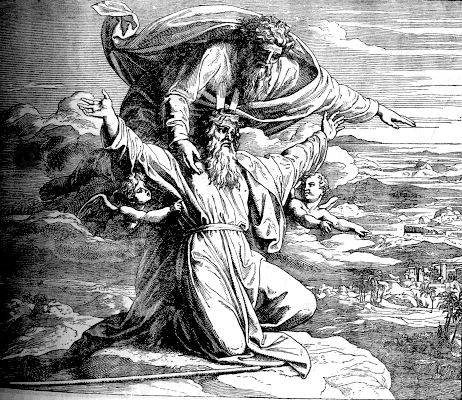Vannevar Bush
Today, Moses at the riverbank. The University of Houston's College of Engineering presents this series about the machines that make our civilization run, and the people whose ingenuity created them.
Vannevar Bush was America's leading counselor on technology and science during and after WW-II. Born in 1890, he studied electrical engineering and mathematics at Tufts University and MIT.
In 1938, Bush became chairman of the National Advisory Committee for Aeronautics, which eventually became NASA. Two years later he was appointed Chairman of the President's National Defense Research Committee. Then he became Director of the Office of Scientific Research and Development. After the war, he held all kinds of high administrative posts in education and government. In 1950, he founded the National Science Foundation.
Near the end of WW-II, Bush wrote an Atlantic Monthly article predicting that the next great leap of technology would be information storage and retrieval. Everyone else was still predicting fast cars, rocket transportation, and personal helicopters. He foresaw credit cards, bar codes, even the Internet. But he saw it all in analog form. He missed the digital revolution.
His biographer, G. Pascal Zachary, likens Vannevar Bush to Benjamin Franklin. Like Franklin, he was enormously creative, he had an astonishing ability to pick up the right threads of technological change, and he used politics as means for making technology serve us in the best possible way. He was bent on making technology reshape and improve the texture of human life.
Yet, by the late 1950s, the world had shifted under Bush's feet. He was sharply critical of our crash program to reach the moon. That may seem shortsighted, but, after we won our race to the moon, we all but ignored our space program for a long time.
Bush also ran aground on the red scares and purges of the fifties. At first, he gave them his conservative approval. During the war, he'd felt that Einstein leaned too far to the left. He joined in cutting Einstein off from the atom bomb's development.
But then, Bush's friend J. Robert Oppenheimer came under attack for having opposed development of the hydrogen bomb -- an opposition that Bush shared. Bush knew Oppenheimer very well, and, at that point, he finally understood that the world had gone crazy.
After that, Bush slipped into despondency, and his light faded. Zachary writes, "The Oppenheimer affair certainly highlighted the gulf between him and the national-security elite." He says that Bush became a "hero without a cause" who, in his late years, "seemed to be against everything."
We saw vast change in the late fifties. And we began severing ties with the technologies (as well as the politics) that'd shaped the Modern world of the early twentieth century. Vannevar Bush was the exemplar of America's Modern age, but he saw the changes coming. And all that change was a river he could not cross. The world that you and I live in today was one he could only witness, with a kind of sinking despair, from the other side.
I'm John Lienhard, at the University of Houston, where we're interested in the way inventive minds work.
(Theme music)
Z. G. Pascal, Endless Frontier: Vannevar Bush, Engineer of the American Century. New York: Free Press, 1997.
V. Bush, As We May Think. The Atlantic Monthly, Vol. 176, No. 1, July 1945, pp. 101-108.
L. Owens, Vannevar Bush and the Differential Analyzer: The Text and Context of an Early Computer, Technology and Culture, Vol. 27, No. 1, January 1986, pp. 63-95.
(As a sidebar to this, I only recently learned that bush pronounced his first name as VanEEVur, not as VANuhvar.)
